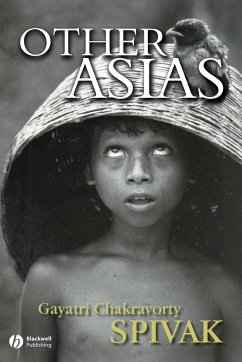In this major intervention into the "Asian Century," Gayatri Chakravorty Spivak challenges the reader to re-think Asia, in its political and cultural complexity, in the global South and in the metropole. Among the chapters in this volume are: * "Foucault and Najibullah," in which she looks at Afghanistan in its own historical and gendered narrative * "Moving Devi," in which she addresses the authority of autobiography and writes as a diasporic * "Responsibility," in which she examines the limits of "theory" upon the floodplains of Bangladesh * "Megacity," where she reads cyberliteracy in Bangalore. Other chapters focus on, among other things, Human Rights, and the turbulent "present" of the Caucasus.
"Other Asias is an eloquent plea for a pedagogy ofcontinental scope that does not evade or erode the singular,'textured' life, thought and work of geographicalregions and political minorities. The exemplary courage andextraordinary imagination that have distinguished Spivak's work arenow engaged in rich reflections on the political art of humanisticeducation."
Homi K. Bhabha, Harvard University
"This deeply passionate, ethical, and political book tellsus that we must pluralize Asia because it is only in a pluralizedworld that we can imagine a more just one."
Eduardo Cadava, Princeton University
"Spivak's postcolonial perspective here offers anincomparable understanding of Asia in its multiplicity ofdifferences, a tour-de-force from one of our era's mostbrilliant engaged and critical thinkers."
Robert J. C. Young, New York University
Homi K. Bhabha, Harvard University
"This deeply passionate, ethical, and political book tellsus that we must pluralize Asia because it is only in a pluralizedworld that we can imagine a more just one."
Eduardo Cadava, Princeton University
"Spivak's postcolonial perspective here offers anincomparable understanding of Asia in its multiplicity ofdifferences, a tour-de-force from one of our era's mostbrilliant engaged and critical thinkers."
Robert J. C. Young, New York University

